RBI and NPCI have introduced eMandate as a prime digital payment solution for helping businesses simplify their payments. It is based on the NACH technology for businesses to collect their payments from consumers without the need for manual intervention. The eMandate technology is further divided into Aadhar eSign mandate, physical mandate, and API mandate.
Further enhancements are made to introduce eNACH solutions for promoting both high and low-value eTransactions between the banks, especially for recurring or periodic payments. Suppose there’s a loan or purchase based on EMIs; the payment collection from the consumers becomes easier for the involved organizations.
These facilities are also beneficial for the customers, as they stay free from the hassle of making recurring payments manually every month or dealing with penalties due to unintentionally missed due dates. So, as eNACH is beneficial for the Indian market, how are the different types of mandates involved in the process helpful in streamlining the end purpose?
There’s a curiosity among businesses to know the functionalities associated with eSign and API Mandate. So, let’s take this article further to explain the efficacies of these two mandate procedures.
What is an API Mandate?
An API (Application Programming Interface) is created in the process by using an integrator. It helps businesses enable the sourcing of the data that they require about the end consumer. With an eNACH API mandate, customers must authenticate the mandate through their debit card or net banking details. In this way, the eMandate API will be used by businesses or financial institutions to recover the lent funds or accept recurring bill payments.
In it, the businesses will be responsible for connecting the customer directly to the bank’s page through the NPCI interface. Under this step, the details will be verified, selection will be made, and the mandate will undergo an authentication process. The mandate information will be submitted to the NPCI platform, and then the mandate will be registered. The users will get a UMRN number for tracking the payments made through mandate authentication.
Businesses are now taking the help of professional agencies in order to integrate API Mandate solutions into their business operations. With it, they intend to allow the customers to avail of the eNACH mandate services by accessing the feature from the business portal itself. Hence, this adds crucial value to the overall business. Some of the key benefits of API Mandate for businesses are:
1. Enhanced Business Value
The API mandate solution embedded in the business operations helps in implementing mandate activation through several channels. The API overlays can also be integrated into third-party business interfaces to support lightweight applications with easy registration of the mandates.
2. Better Success Rates
The success rate of collecting payments with API eMandates is quite high, at around 90%. It is considered the highest among all of the other available mandate options. Therefore, businesses can consider using it on priority to get their payments on time without bearing any losses or additional recovery expenses.
3. Accessibility to Upload Numerous Mandates
The businesses have the flexibility to upload numerous mandates as per their desired needs. NPCI has a powerful technology-rich server for uploading all these mandates in real-time. Thus, all of them are also approved instantly at once, without any kind of delay, which was common earlier with the manual mandate techniques. Thus, businesses get the feasibility of streamlining their financial aspects while conducting seamless business operations.
4. Ideal for Various Industries
API Mandate is a proven technology implementation that has made business payment collection more seamless than ever. Therefore, more and more industries are now seeking upgrades to implement eNACH services. Some sectors that have already leveraged the potential of the API Mandate are Banks & NBFCs, insurance, mutual fund, healthcare, entertainment, education, and NGOs.
What is the Aadhaar eSign Mandate?
Aadhar eSign mandates are also known as the system mandates digitally signed by the customer. It permits the simple process of signing the eDocuments by authenticating the concerned person by utilizing the eKYC services of Aadhar. NPCI initiated this approach alongside the introduction of the APB (Aadhar Payment Bridge) system.
APB system further enhances the DBT (Direct Benefit Transfer) Scheme by Government. Thus, all of the nationalized agencies made this initiative a great success. The purpose of the Aadhar eSign mandate is to streamline the Government schemes and benefits by using the Aadhar numbers. Such an initiative acts as the bridge between banks and the Government.
The APB system, in accordance with the eSign mandate, uses an Aadhar number to create a unique payment system for channelizing Government subsidies. It also benefits the beneficiaries with the AEBAs (Aadhaar Enabled Bank Accounts). It serves the goal of financial inclusion and initiates a Government opportunity for attempting financial re-engineering for an overall subsidy management program.
Some of the benefits of the Aadhaar eSign mandate are as follows:
1. Fewer Needs for Documentation
Eliminates the inordinate delays, paperwork, and multiple channels involved within the process or system.
2. Easy Transfer of Money
All subsidies and benefits will be transferred within time, directly to the Aadhaar Enabled Bank Accounts.
3. Easy Changing of Bank Account
If you are changing your bank account, you do not have to convey the same to any Government agency or department.
How do the API Mandate and Aadhaar eSign Mandate Relate to One Another?
API Mandate and Aadhaar-based eSign mandate both work towards implementing eNACH or eMandate, better than the physical mandate approach. The API mandate demands that customers offer a debit card or net banking details for carrying out the feasible payment collection process.
The Aadhaar eSign mandate demands you just the OTP on the linked phone number, which will then take around 3 to 5 days to complete. The design mandate requires two to three days to get registered, whereas the API mandate gets registered in real-time.
API mandate is available in more than 45+ banks, and the eSign mandate is available in around 40 banks in India. The success rate is nominal for both API as well as eSign mandates, with 90% and 80%, respectively.
FAQs
What is an API Mandate in Banking?
API Mandate allows businesses to collect the mandate-associated data and transmit all of the information to the portal of NPCI and the destination bank. The idea is to enable the banks to debit funds from the source to the destination account. It is ideal for businesses to enable payment collection of periodic payment flexibilities given to the consumers, such as EMIs, loans, insurance premium collection, investment schemes, etc.
What is the difference between eMandate and Mandate?
The physical mandate demands that businesses request customers to fill out the physical forms, and manual processes are involved in processing the documents and registering the mandate. It is a very time-consuming process. In other words, the eMandate is about automating the payment collection facilities through APIs and Aadhar eSigns, for automating the payment collection.
How is the eMandate Process Flexible?
With eMandate, customers have the flexibility to change or modify their payment structure, which can be done easily without much hassle whenever the need arises. Hence, the relationship between the customer and the business arises.
Conclusion
Having eNACH or eMandate facilities for business will allow the customers to make timely payments for recurring EMIs or bill payments. With this, you don’t have to often send reminders to your customers, which drives their interest away from availing your services ever again. eMandate will help you ensure that your business collects regular payments from consumers without interrupting the quality of customer service.
Frictionless payments, customer retention, savings on administrative costs, and a convenient process is all that you get upon implementing eMandate and eNACH services in your business. With this approach, all of the payments made are stated online. Thus, all of the financial data of your business will be properly aligned with that of the bank, which will further speed up the accounting process. No need for various other tools to record the payments.

